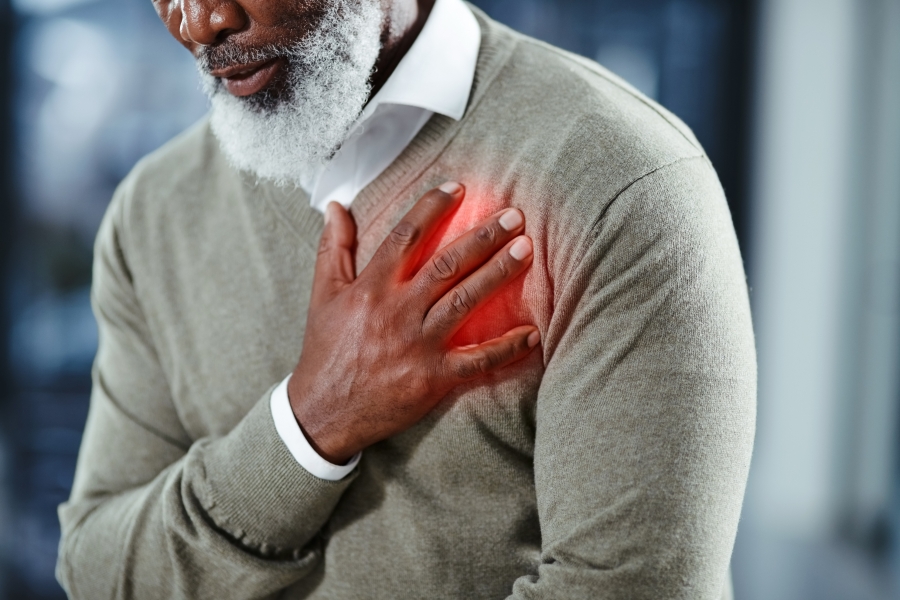We've all seen the television and movie versions of a person having a heart attack: someone, usually a man, suddenly clutches his chest, in extreme pain. It makes for good drama, and it's not inaccurate. As a cardiologist at Temple, I can tell you that it's far from a complete picture.
Heart Attack Symptoms: Are They Different for Men and Women?
View All Blog PostsHeart disease is the leading cause of death for both men and women. Heart attacks do not discriminate — women are just as likely to have a heart attack as men are. But women are more likely than men to die from one. Studies show it often comes down to recognizing symptoms of a heart attack — or not.
Signs of a heart attack in women that get missed
Researchers have learned that symptoms of heart attack can be very different, especially for men and women. The most common signs of a heart attack are the same for both, as the table below shows. But there are many symptoms women are more likely to have that are less expected:

View a larger version of this infographic >
Although having crushing chest pain is not unusual for women experiencing a heart attack, more often than not they have a combination of less-recognized symptoms such as:
- Nausea
- Indigestion
- Fatigue
- Dizziness
Women tend to attribute those types of symptoms to non-life threatening conditions that are not heart related, such as acid reflux, the flu or even stress and anxiety.
Rather than getting medical care, women are more likely to wait it out, hoping symptoms go away, with heart-damaging and life-threatening consequences.
Know the signs of a heart attack and call 911
Take time to learn the signs of a heart attack — the familiar and not-so-familiar ones. It's true, symptoms of a heart attack can sometimes be signs of other health problems.
If you or someone you're with is experiencing symptoms, don't ignore them or take time to self-diagnose. Go to the nearest emergency room or call 911 immediately for help. Every minute counts. The sooner you get medical help, the more you reduce the risk of heart damage or death.
Know your risks and take care of your heart health
Focus on preventing a heart attack by knowing your risks. Some, such as age, sex and family history, cannot be changed. But others can. According to the American Heart Association, major risk factors you can modify, treat or control include:
- Smoking
- High blood pressure
- High cholesterol
- Being overweight or obese
- Diabetes
- Inactive lifestyle
- Poor nutrition
- Stress
Talk with your primary care physician about risks you may have and lifestyle changes you can make to reduce your risks. If you have concerns about your heart health, don't wait to seek care. Schedule an appointment with a Temple cardiologist. We offer safe in-office appointments and virtual visit options.
Helpful Resources
Looking for more information?
Daniel Edmundowicz, MS, MD, FACP, FACC
Dr. Edmundowicz is Professor and the Richard and Dorothy Evans Chair, Department of Medicine at Lewis Katz School of Medicine at Temple University and Florence P. Bernheimer Distinguished Service Professorship Chair in the Section of Cardiology. He is board certified by the American Board of Internal Medicine in Cardiovascular Disease. Dr. Edmundowicz is a Fellow of the American College of Cardiology and past president of the ACC’s Pennsylvania Chapter. He is also a member of the American Heart Association and National Lipid Association.


